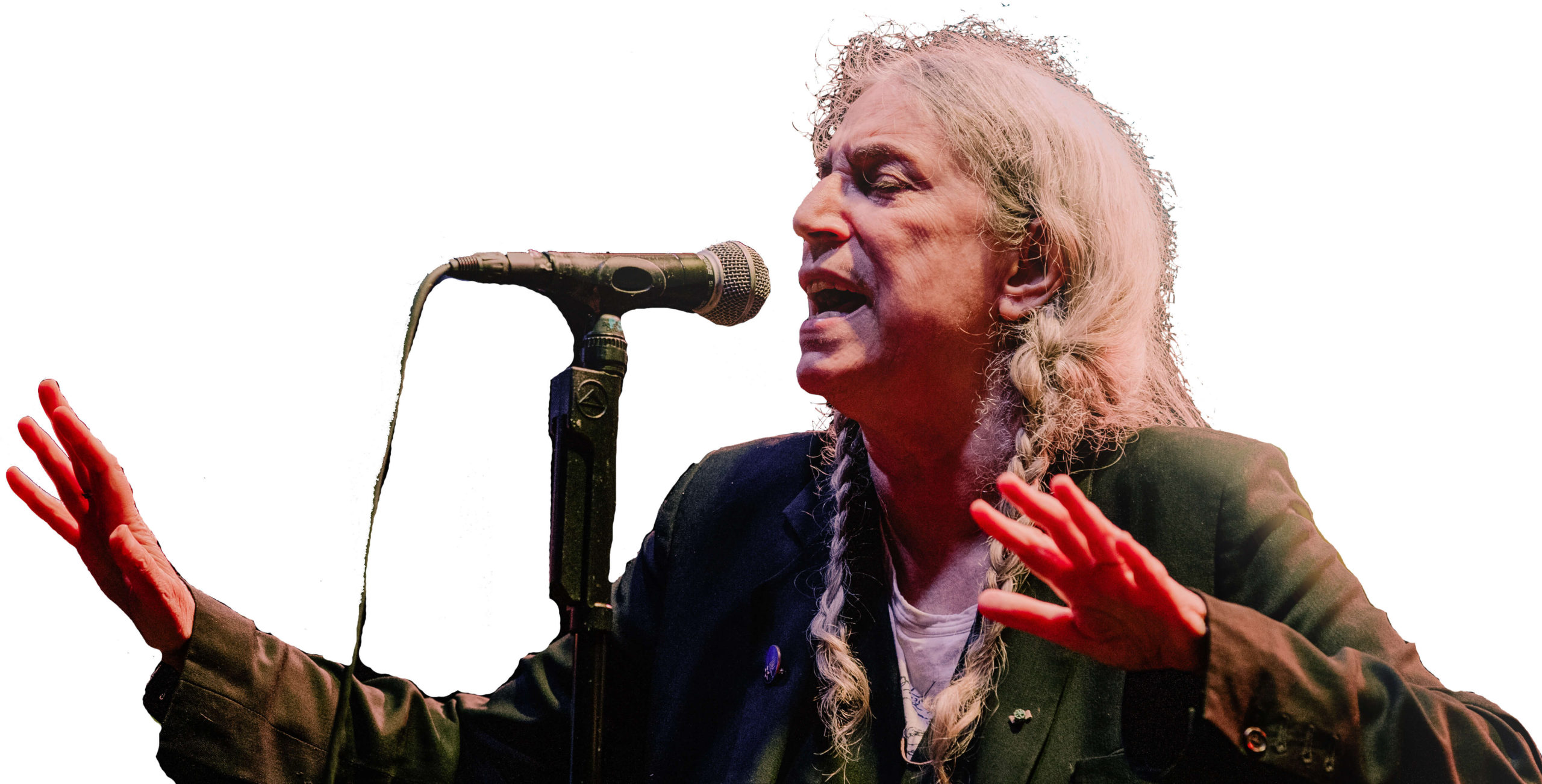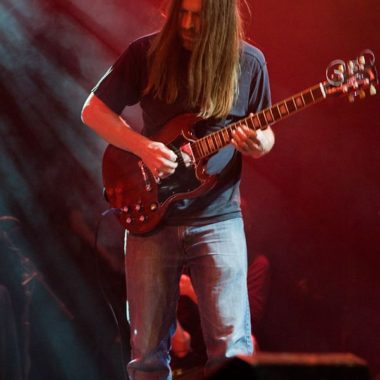Rock and Roll Priestess Patti Smith Returns to SummerStage (photo by Marissa Blitz)
I don’t know how many times I’ve seen Patti Smith. On the street in the West Village one momentarily thrilling winter afternoon, but besides that, in concert, more than a half dozen times, and most of them outdoors. She gives to New York.
The first was at Central Park Summerstage in 1995, in a then-rare appearance. She’d spent much of the previous 15 years away from the spotlight and had returned to performing only after losing her husband, Fred “Sonic” Smith, and her brother. It was, no doubt, a difficult show for her, and she appeared vulnerable and unsteady. I chalked it up to checking one off the list and didn’t think much more about it. I don’t know when the next one was, but I know it was great because every other time I’ve seen her has been impassioned, enthusiastic and exciting.
As great as each concert was (after the first, at least), it’s the covers that make them memorable. It’s in her performances of other artists’ songs that she reveals herself as the adoring fan, as one of us. When she’s singing, she’s the fierce shaman of her albums. Between songs, she’s all smiles and gray braids, spitting on the stage, waving to the audience and nearly giggling with delight as if, after all the decades, she’s still blissed to be the one on stage.
I saw her sing Hank Williams’s “Six More Miles to the Graveyard” during a sound check before a show outside the World Trade Center and Nirvana’s “Smells Like Teen Spirit” with bluegrass legends Sam Bush and Jerry Douglas sitting in at Lincoln Center Out-of-Doors. I took my girlfriend to another appearance at Damrosch Park, advertised as a reading, and smiled when we walked up and saw a drum set on the stage. She played a full set, including the Stones’ “This Could Be the Last Time” (just after Mick Jagger announcing he was going to be a father again at age 74) and tore through a version of the Who’s “My Generation,” turning it into a sneering AARP anthem. My girlfriend (now my wife) later declared that Patti Smith should be president, not just because of her Abraham Lincoln bone structure. And on September 19, I saw her again, at SummerStage in Central Park. She sang Stevie Wonder’s “Blame it on the Sun” sweet enough to melt the autumn moon and Bob Dylan’s “One Too Many Mornings,” bringing her love of music and poetry together once again.
Waiting in the long line to get in, I read her boldly transparent and endearingly unpretentious Devotion, a book that contains a short story preceded by her thoughts and the events in her life leading up to writing the story—films she watched, books she read, artworks she looked at, historical figures who were on her mind, all the things that rolled up and influenced her fiction, as art is all one thing. Or maybe everything is art. Either way, it’s not wrong to want to believe she’s right.
She opened her SummerStage return with “Grateful” from 2000’s Gung Ho, an unusual choice but a reminder that life is fragile and life is ours, and there’s nothing like a waltz to get an audience moving as one. She dedicated “Redondo Beach” to Lee “Scratch” Perry and “Beneath the Southern Cross” to Charlie Watts, the second song floating between Television and the Allman Brothers with an interpolation of the Beatles’ “Within You, Without You” before a snap into acoustic guitar punk drive. She led the audience in a “we shall live again” sing-a-long during “Ghost Dance” (from 2001’s Seeds in the Wind) and told us to value and to take responsibility for what we have, instructing us to take care of one another. “We are still alive,” she announced. “Where there is life, there is possibility for change! […] We have a pandemic, we have environmental crisis, but we are living beings and we are fucking free! We can fucking change the world! We can do it!” And we believed it, some for longer than others, but we believed it because she believes it enough for all of us.
With a band of longtime associates and her two children, she laid out fervent versions of favorites from decades past, “Free Money,” “Because the Night,” “Dancing Barefoot.” At 74, she’s still got the scream and the growl, she’s got the hiccup inflections and all of the energy. She’s a fan but she’s also a star, rock and roll’s institutional memory, embodiment of ’60s activism and ’70s anger, our poet-guardian. Patti Smith is the rightful steward of the property. She announces “Jesus died for somebody’s sins but not mine” with all the bold defiance it had when she released her reworking of Them’s hit “Gloria” 46 years ago. It’s one of the all-time great rock-and-roll lines. The fact that she grafted it onto a ’60s garage hit about pining for a girl on the street only magnifies its brilliance.
She saved “People Have the Power” for the encore. I’m all but certain that every time I’ve seen her, she’s done that song, one I didn’t like when it came out in 1988 and I don’t like today. It’s too optimistic, too anthemic, too obvious, and every time I hear her sing it, I’m swept up. I don’t much like it except for every time I’ve heard her play it. House lights on, Smith and her band had the crowd (many her children’s age) pumping their fists and flashing peace signs like it was a political rally. Which it was. It was also a church meeting, a spiritual revival and a zen retreat. But most of all, it was a rock and roll show.










